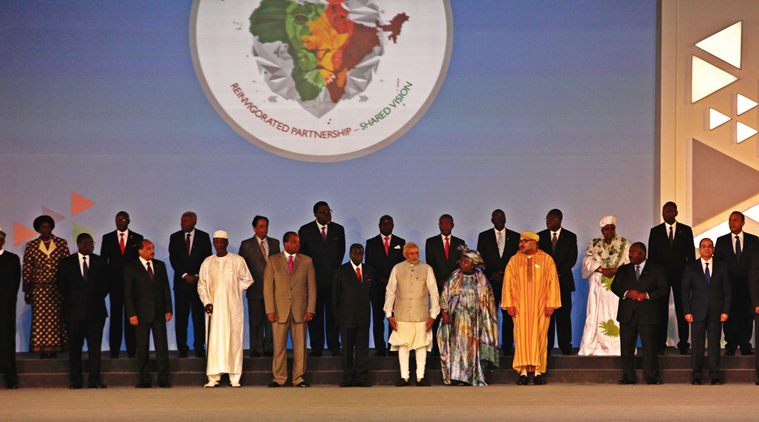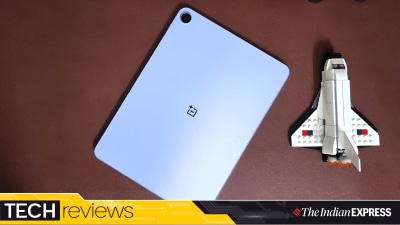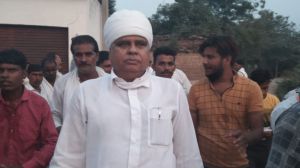 Indian Prime Minister Narendra Modi, talks to African Union Commission chairperson Nkosazana Dlamini-Zuma, as other African leaders look upon the India Africa Forum Summit in New Delhi, India, Thursday, Oct. 29, 2015. More than 40 African leaders are in New Delhi to attend the IAFS 2015. (Express photo by Renuka Puri)
Indian Prime Minister Narendra Modi, talks to African Union Commission chairperson Nkosazana Dlamini-Zuma, as other African leaders look upon the India Africa Forum Summit in New Delhi, India, Thursday, Oct. 29, 2015. More than 40 African leaders are in New Delhi to attend the IAFS 2015. (Express photo by Renuka Puri)
As many African leaders expressed their gratitude for the Indian assistance for the development projects, there was one consistent refrain expressed by many of them: please monitor the projects. Since 2008, the government has extended USD 7.8 billion worth of concessional credit, but only about half has been used.
At least 6 African leaders, including Zimbabwe President Robert Mugabe – who visited India even during Indira Gandhi’s famous NAM summit in 1983 — called for “monitoring” and “evaluation” during their speeches at the 3rd India-Africa summit.

While Mugabe asked for “robust evaluation of projects and programmes”, African Union Commission Chairperson Nkosazana Dlamini Zuma said that the success of the summit “is as good as implementation of the document”.
The Swaziland King Mswati III also asked for an “effective and efficient monitoring mechanism” and the Gabon President Ali Bongo Ondimba said projects need a “rigorous mechanism of follow-up”.
Complaints of poor implementation of projects — these are being implemented under the line of credit and aid — are a recurring feature.
Modi admitted that there are times when India has not done as well as it wanted and not fulfilled commitments as quickly as it should have.
So, while India announced 10 billion USD as fresh line of credit, although more than USD 3 billion is still to be used in the African continent – questions are being raised about India’s delivery mechanism.
Story continues below this ad
The projects, which are usually small and medium scale projects, need constant monitoring, and that is what has been found lacking by many African governments.
The Chinese have raced ahead in terms of project implementation, and that has been one of the key differentiators in case of India’s role in Africa.
Since the first step has been taken by announcing a joint monitoring mechanism which will done, in collaboration with the African Union, it will be critical that India evaluates its project implementation and plugs the loopholes.
In some cases, local conditions may play a role in the slow implementation of the projects in Africa, but the gaps and lapses in the Indian system need to be rectified.
Story continues below this ad
If that’s not done, bulk of India’s additional line of credit – which has been extended during the third summit – will remain on paper when the fourth India-Africa forum summit is held in 2020. And, instead of generating goodwill, they may end up generating negative sentiments.
India cannot afford to make mistakes on this count, as New Delhi wants to position itself as the “alternative non-western” partner for Africa. They may prove to be costly.

 Indian Prime Minister Narendra Modi, talks to African Union Commission chairperson Nkosazana Dlamini-Zuma, as other African leaders look upon the India Africa Forum Summit in New Delhi, India, Thursday, Oct. 29, 2015. More than 40 African leaders are in New Delhi to attend the IAFS 2015. (Express photo by Renuka Puri)
Indian Prime Minister Narendra Modi, talks to African Union Commission chairperson Nkosazana Dlamini-Zuma, as other African leaders look upon the India Africa Forum Summit in New Delhi, India, Thursday, Oct. 29, 2015. More than 40 African leaders are in New Delhi to attend the IAFS 2015. (Express photo by Renuka Puri)





































